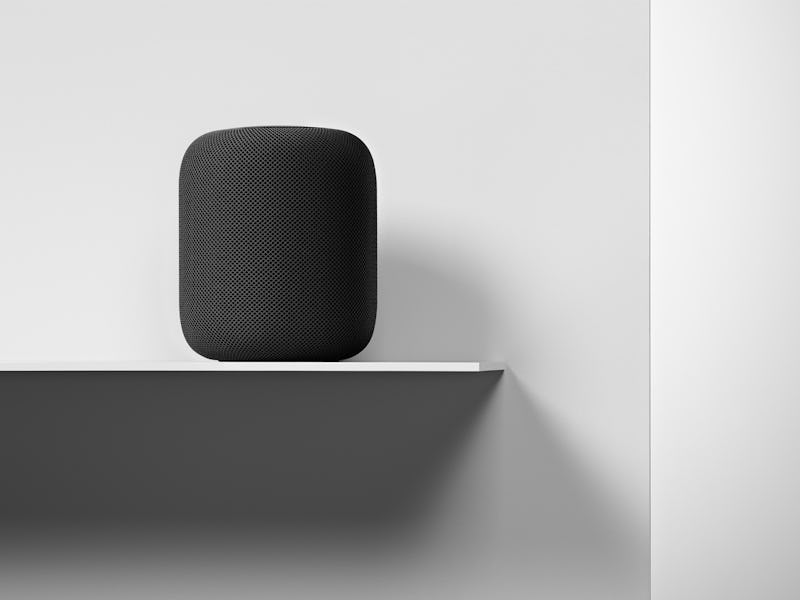Apple Is Earning Surprisingly Little from the HomePod Smart Speaker
There could be a good reason for that.

The HomePod is not a big money maker for Apple. That’s according to a new analysis released by TechInsights in Thursday, which revealed how the company’s answer to Amazon Echo and Google Home does not bring in particularly high returns with every unit sold. It seems in aiming to wow in the marketplace, Apple has poured its resources into making the HomePod sound as impressive as possible.
“Apple is compressing their margins a bit, wanting to go big or go home,” Al Cowsky, TechInsight costing manager, told Bloomberg.
The analysis suggests each $349 HomePod costs $219 to make, meaning a 38 percent margin for each sale. The Amazon Echo, on the other hand, offers 66 percent returns, while the Google Home brings in 56 percent, with the standard models of each retailing for $99.
It’s also a notably lower return than other Apple products. A November analysis of the components in a $999 iPhone X showed the phone cost $357.50 for parts, a 64 percent margin. The $349 Apple Watch Sport was discovered in a 2015 report as costing $83.70 to make, a margin of around 74 percent.
For a pricier set of components than the Echo and Home, consumers get a powerful set of speakers. The HomePod has been singled out in reviews as having a “rich and full sound,” while the Echo “sounds more like a 90s car radio.” One hands-on review in the Reddit audiophile community said that the product “deserves a standing ovation,” comments quoted by the company’s senior vice president of worldwide marketing Phil Schiller:
It’s not all great news, though. While Apple may have poured money into making the HomePod shine on the sound front, it seems the Siri voice assistant in the background is still lacking. Early reviews note that the artificial intelligence, which was first introduced with the iPhone 4S in 2011, still fails to understand complex queries like making a phone call or searching for recipes. The system also cannot distinguish between the owner’s voice and somebody else, allowing a visitor to invoke the assistant by saying “hey Siri” and sending iMessages to the owner’s contacts.
This could change in the future. A rumor surrounding the upcoming iOS 12 software update suggests deeper Siri integration could arrive in a future update. Whether these changes carry over to the HomePod remains to be seen, but judging by the margins it’s clear Apple plans to sacrifice higher profits in return from getting a foothold.